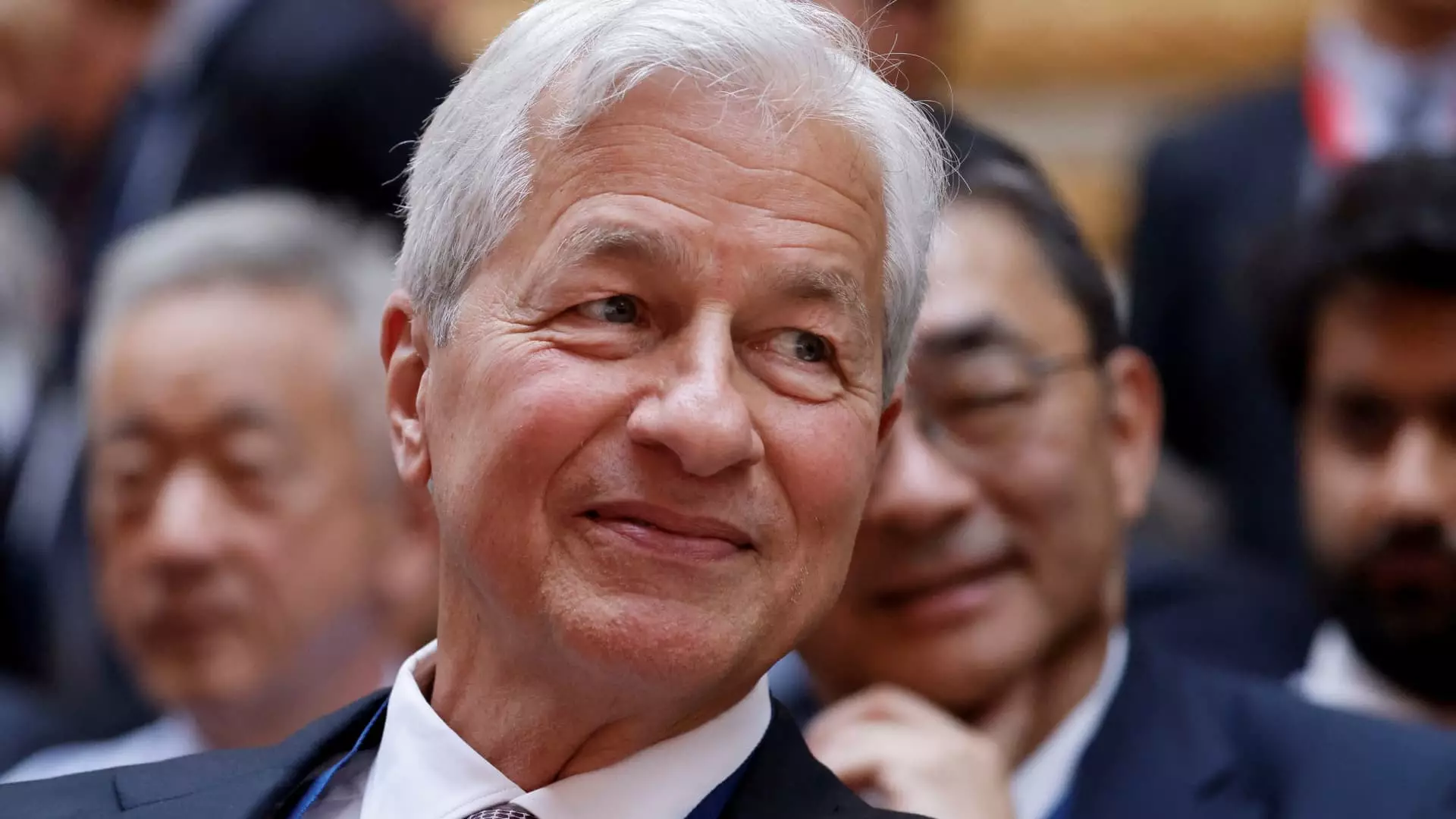As the global economy experiences ongoing turbulence, the topic of trade tariffs has become increasingly pertinent. Recent remarks by Jamie Dimon, the CEO of JPMorgan Chase, underscore the complexity and duality of tariffs as tools of economic policy. With President Donald Trump considering the implementation of new tariffs on several trading partners, including Mexico, Canada, China, and the European Union, there is a growing debate on the implications for the U.S. economy. Central to this discussion is whether such tariffs will bolster American interests or escalate tensions leading to a potential trade war.
In a recent interview at the World Economic Forum in Davos, Dimon suggested that these tariffs could be beneficial if implemented thoughtfully. He acknowledged the potential for inflation as a consequence of these tariffs but countered that protecting national security may justify this economic trade-off. Dimon’s view reflects a broader sentiment among some business leaders that tariffs, when applied judiciously, can drive negotiations and possibly yield better trade agreements for the U.S.
The dual nature of tariffs—serving as both a protective economic measure and a potential catalyst for inflation—invites critical analysis. While tariffs can foster national industries by creating a more favorable competitive environment, they also come with risks. Higher consumer prices could burden American households, particularly for products heavily reliant on imports. Dimon’s assertion that “national security trumps a little bit more inflation,” highlights a philosophy prioritizing strategic interests over immediate economic comfort.
During the Trump administration’s previous term, tariffs were introduced across a spectrum of goods, reflecting a combative stance toward trade partners designed to remedy perceived imbalances. Despite fears of significant economic repercussions, inflation rates remained relatively low. This paradox indicates that while tariffs can instigate price changes and impact the value of currency, their broader ramifications are nuanced and require measured consideration from policymakers.
The backdrop of Dimon’s comments is a substantial trade deficit, particularly with the European Union, which witnessed a $214 billion deficit in the previous year. Trump’s critique of the EU for its trade surplus underscores the continuing contention in international trade dynamics. However, Dimon and other top executives, like Goldman Sachs CEO David Solomon, argue for a constructive rebalancing of trade agreements.
In Solomon’s view, adjustments to existing trade frameworks could yield benefits if approached diligently. The emphasis is on negotiation rather than domination; the challenge lies in executing these policies without provoking retaliatory measures from other nations—an eventuality that could escalate tensions and harm the very economy they aim to protect.
Despite looming tariff announcements, the U.S. dollar has shown signs of weakening, a phenomenon that merits attention. Dimon pointed out that while tariffs can influence the dollar’s value, the key driver remains economic growth. The interrelation between tariffs, currency strength, and economic expansion is intricate and requires wisdom in policy planning.
Looking forward, as the U.S.-Mexico-Canada Agreement is set for review in 2026, there are calls for an inclusive dialogue that encompasses a variety of stakeholders, including economic experts, policymakers, and industry leaders. Building a foundation for constructive trade practices will be essential to achieving long-term objectives without succumbing to the disruptive forces that tariffs can unleash.
The rhetoric surrounding tariffs reflects the broader complexities of American trade policy. Leaders like Jamie Dimon advocate for measured use of tariffs as tools that can, under certain conditions, protect national interests and foster better agreements. Nonetheless, the potential for inflation and market volatility presents a significant counterargument that must be carefully considered. As the U.S. navigates its trade relationships, the emphasis should be on constructive debate and responsible policy, ensuring that any implemented tariffs serve the dual purpose of safeguarding economic stability while fostering international partnerships.

